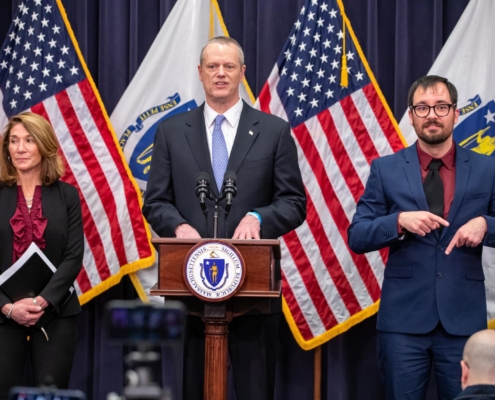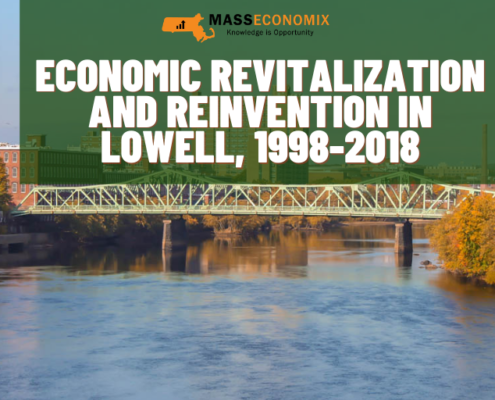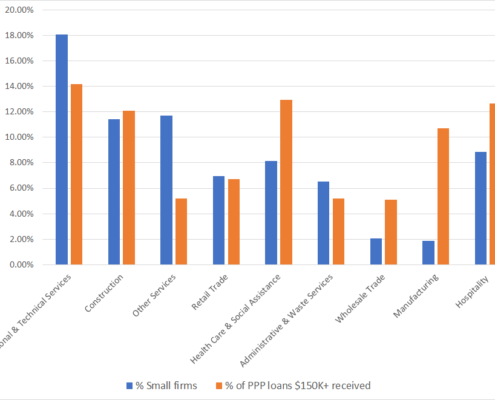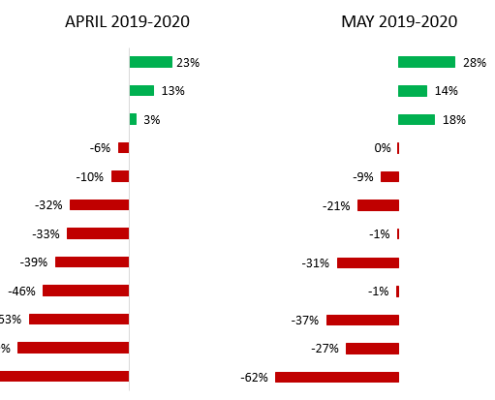California Tax Experiment: Policy Makers Receive Valuable Economics Lesson
/0 Comments/in COVID Economy, Economic Opportunity, Featured, Graduated Income Tax, Podcast Hubwonk /by Editorial StaffHost Joe Selvaggi talks with Stanford University Economics Professor Joshua Rauh about his research on the reaction of Californians to a tax increase, from his report, “The Behavioral Response to State Income Taxation of High Earners, Evidence from California.” Prof. Rauh shares how his research offers tax policy makers insight into the likely effects of similar increases in their own states, including here in Massachusetts.
Related: New Study Finds Tax Policy Drives Connecticut’s Ongoing Fiscal & Economic Crisis
Guest:
 Joshua Rauh, originally from Newton, MA., is a Professor of Finance at the Stanford Graduate School of Business, a Senior Fellow at the Hoover Institution, and a Research Associate at the National Bureau of Economic Research (NBER). Professor Rauh’s research on state and local pension systems in the United States has received national media coverage in outlets such as the Wall Street Journal, the New York Times, the Financial Times, and The Economist. He is an Associate Editor of the Journal of Finance and an editor of the Journal of Pension Economics and Finance and the Review of Corporate Finance Studies. He holds a BA degree in economics, magna cum laude with distinction, from Yale University and a PhD in economics from the Massachusetts Institute of Technology.
Joshua Rauh, originally from Newton, MA., is a Professor of Finance at the Stanford Graduate School of Business, a Senior Fellow at the Hoover Institution, and a Research Associate at the National Bureau of Economic Research (NBER). Professor Rauh’s research on state and local pension systems in the United States has received national media coverage in outlets such as the Wall Street Journal, the New York Times, the Financial Times, and The Economist. He is an Associate Editor of the Journal of Finance and an editor of the Journal of Pension Economics and Finance and the Review of Corporate Finance Studies. He holds a BA degree in economics, magna cum laude with distinction, from Yale University and a PhD in economics from the Massachusetts Institute of Technology.
Get new episodes of Hubwonk in your inbox!
Related Posts:

Pioneer Institute Statement on Governor Baker’s New COVID Restrictions

Pioneer Report Highlights Employment Growth in Lowell, Massachusetts

Ballot Question 1: Risks & Regulations Regarding Right to Repair

Small Business Life Support: Policy Relief for Firms Sickened by COVID?

Pioneer Report Underscores Wide Disparities in Economic Performance between Industry Sectors in Massachusetts

Study: Economic Recovery from COVID Will Require Short-Term Relief, Long-Term Reforms

Effects of Covid-19 on the Accommodation and Food Services Industry
 https://pioneerinstitute.org/wp-content/uploads/Dollar-bills-1.jpg
1079
1527
Thomas O'Rourke
https://pioneerinstitute.org/wp-content/uploads/logo_440x96.png
Thomas O'Rourke2020-08-14 10:00:422020-08-13 09:52:45Massachusetts PPP Benefits Big Businesses, Data Called Into Question
https://pioneerinstitute.org/wp-content/uploads/Dollar-bills-1.jpg
1079
1527
Thomas O'Rourke
https://pioneerinstitute.org/wp-content/uploads/logo_440x96.png
Thomas O'Rourke2020-08-14 10:00:422020-08-13 09:52:45Massachusetts PPP Benefits Big Businesses, Data Called Into Question
Where Did the Largest PPP Loans Go? Assessing the distribution of loans by industry

Non-Profits Facing COVID-19: Charles River’s Esplanade Association on Why It’s No Walk in the Park

Data, Attitudes, and Ecommerce: Noteworthy trends in retail for the present and future

New Study Offers Guide to Recovery in MA Retail, Accommodation and Tourism, and Restaurant Sectors
PPP Loan Tracker

One UMass System, Different Reopening Plans

Coronavirus Hits Back on Communities Who Slowed Their Spread

Pioneer Institute Study Calls for Streamlining State Sales Tax Revenue Collection

Even for the most remote part of Massachusetts (Franklin County), it’s far from business as usual



